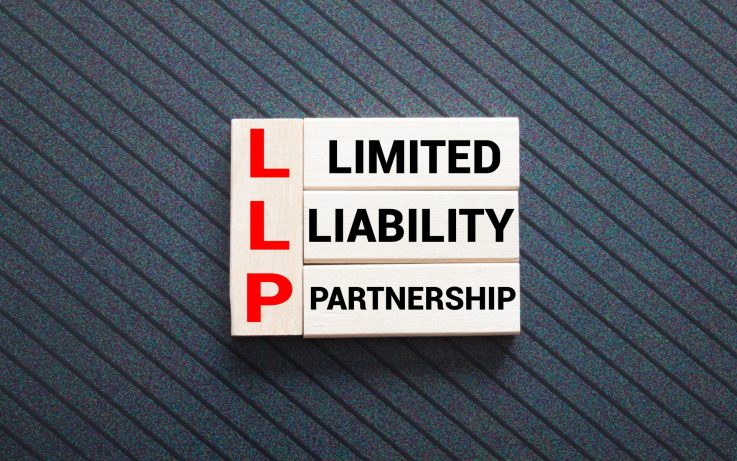Accounting Services for UK Companies

The UK offers many opportunities for business development and is interested in attracting investors by providing additional benefits. However, at the same time, the UK government has lots of rules and regulations. Entrepreneurs must comply with the requirements for filing annual accounts, meeting deadlines and paying taxes.
Here are a few main reports:
- Financial accounts.
- Tax returns.
- VAT returns.
- Audits.
- Payroll reports.
It is important to follow deadlines for each report and to fill them in correctly. A qualified accountant will:
- Give exhaustive advice on how to run a business in the UK and pay corporation tax.
- Prepare reports in full compliance with UK law.
- Manage bookkeeping and accounting.
- Register a company for VAT and prepare quarterly returns.
- Take care of payroll.
- Conduct audits.
Financial Reporting and UK Taxation
The UK has two types of reports: financial and tax reports. Annual accounts must be filed by all companies registered in the UK, except for Scottish Limited Partnerships (SLP) which do not have to submit accounts to the Companies House if they trade overseas. All other companies are required to submit annual accounts for their financial year, prepared under UK accounting rules.
All UK businesses must prepare and submit their tax return. UK companies are legally obliged to submit information on profit, expenses, and financial statements. Even if there are no transactions during the accounting period, you must file a nil tax return. However, there are cases, when a company is considered dormant by HMRC and then it will be exempt from filing an annual tax return.
Filing Requirements
Annual accounts must be submitted to the Companies House while tax and other returns to the HMRC.
Annual accounts can be submitted in a paper format (in exceptional cases) or online. All accounts must be submitted via accounting software. It is possible to submit accounts to the Companies House both using special software and on the Companies House website.
Reporting Periods in the UK
Tax reporting and financial accounts can have different reporting periods. A financial year of a newly registered company starts on the date of registration and ends on the last day of the month of registration the following year. That is, if a company is incorporated on 7 May 2022, the first date of the accounting period will be 7 May 2022, and the end date will be 31 May 2023.
On the contrary, a tax year can only include a period of 12 months. It is common to take the period beginning on 1 April of a previous year and ending on 31 March of a current year as a tax year. Submission of documents for a longer period is done by preparing two tax returns covering the entire required period.
Deadlines for Submitting Reports
There are rules regarding deadlines for submitting reports:
- Accounts for a previous period must be submitted not later than 9 months after the end of a fiscal year of the company.
- The company’s tax return must also be prepared within 9 months after the end of a tax year.
- One month and seven days are given to prepare a VAT report and pay the tax.
- A payroll report must be submitted by or on the last day of the month, and taxes must be paid to the HMRC within 22 days.
To avoid penalties, it is important not to miss the deadlines for submitting reports, to promptly pay taxes to the HMRC, and to accurately fill in any required forms. A competent accountant with years of experience can help you with all of this. The accountant may also tell you when and which allowances you can apply for, where and how it will be profitable to carry out transactions and record them to reduce the tax burden as much as possible.
Taxation of Self-Employed and Company Owners
Employees do not submit personal tax returns or pay social contributions; it is the responsibility of their employer. However, self-employed and company owners must report what they earn by filling in a personal tax return, called a Self-Assessment Tax Return (SA TR).
The return must be filled in for each tax year that begins on 6 April and ends on 5 April of the following year. For example, it could be the year from 06 April 2022 to 05 April 2023.
After the end of a tax year, you have time to fill in a tax return and pay the required tax by the following deadline:
- For paper submissions, it should be by or on 5 October of the year when the tax year has ended.
- For electronic submissions, the deadline is 31 January of the year following the reporting year. For example, for the period 6 April 2022 — 05 April 2023, you must send a tax return by 31 January 2024.
- You must pay the amount of tax due to the state by 31 January of the year following the reporting year.
Self-employed and company directors can be eligible for certain income tax allowances. To check which allowance you may qualify for, it’s better to get advice from a professional accountant, who will accurately prepare a personal tax return and advise on how best to report your income to reduce the tax amount as much as possible.
Audits of UK Companies
An audit is an annual thing. However, companies that fall into the category of small businesses, are exempt from this requirement. To be considered a small business, you must meet at least two of the following criteria.
For fiscal years ending after 1 January 2016, the following criteria apply:
- The company’s annual turnover must not exceed £10.2 million.
- The sum of the company’s assets must not exceed £5.1 million.
- There must be no more than 50 employees.
Besides, an audit is not mandatory for businesses that have not traded during the reporting year or have had no significant financial turnover. Another exception is companies engaged in charitable activities. Subsidiaries do not require an audit either.
However, there are cases when companies that are exempt from a mandatory audit must arrange for it. It can be for any of the following reasons:
- The company’s Articles of Association include an audit clause.
- Shareholders request an audit.
- It is a government requirement.
- An audit is necessary to obtain a bank loan.
Value Added Tax (VAT)
Every company with an annual turnover of £85,000 and over must be registered for VAT. Exceptions apply to certain categories of goods, in relation to which a zero tax rate applies by default, for example, most food products, clothing and footwear for children, books and other categories included in a special list.
There is a procedure for voluntary registration which many companies are eager to take advantage of. The following categories are subject to VAT:
- Sales of goods and services, including to one’s employees (for example, in case of opening a canteen at the company).
- Leasing activities.
- Sale of the company’s assets.
- Commissions on transactions.
- Sales of commercial goods for personal consumption.
- Gifting and exchanging.
Registering for VAT will be much easier with the help of an accountant. The accountant will get all the necessary data, submit an application, and, provided it is approved, will give you a certificate with the following:
- Your VAT registration number.
- The deadline by which you should submit your first VAT return.
- The company registration date or the date on which the company exceeded the VAT threshold.
Every VAT-registered company must:
- Add tax to the cost of goods and services.
- Keep records of the purchase and sale of goods with VAT.
- Timely notify the tax authorities about VAT turnover.
- Pay due tax by given deadlines.
The common reporting period for a value-added tax is a quarter. However, the HMRC can change it to a monthly, half-yearly or yearly reporting period. At the end of each reporting period, a company is given a month and one week to prepare and submit a VAT return to the tax authorities and pay the corresponding tax. However, the HMRC have the right to notify the company of a change in the submission deadline.
Payroll in the UK
A company must pay an income tax and national insurance contributions for each employee. These amounts are calculated each month for each employee based on their salary.
The United Kingdom has a special system, called PAYE (Pay As You Earn) to organise the taxation of employers and their employees. It helps:
- To promptly send information to the tax authorities about employees’ salaries and get feedback on any errors found by the HMRC.
- To see electronic tax codes and warnings for employees.
- To appeal penalties when notified about them.
The deadline for registering a company for PAYE depends on the first planned payroll payment: the company must register by this date. It should also be taken into consideration that paperwork will take 2-6 weeks, so you should start the registration process keeping beforehand, but not earlier than two months before the first salary payment.
It is important to timely send payslips to the HMRC, withhold correct income tax from employees and timely remit it to the HMRC. Besides, employees must pay monthly national insurance contributions; these should be reported within 22 days (electronically) or 19 days (by post) of the month following the reporting month.
The payroll obligations apply both to companies with large headcount and to a company with only one director receiving a salary, as well as household staff (housekeepers, gardeners, nannies, etc.).
FAQ about Accounting in the UK
What do financial accounts consist of?
Annual accounts must include the following documents:
- A balance sheet with all assets and liabilities.
- Information on goods and services sold, including profit and loss statement for the accounting period.
- Notes about the accounts.
- Audit data.
- Director’s report.
Who must submit the accounts and, if necessary, communicate with public authorities?
Apart from the company’s director, accounts can be submitted and information can be clarified with the tax authorities by
- A tax agent (they can liaise with public authorities on behalf of the company and send them accounts).
- Authorised assistants (they can access the company’s account on the HMRC website).
- Intermediaries (they help prepare accounts but do not have access to the company’s account on the HMRC website).
Will VAT start to accrue automatically once the company’s turnover exceeds £85,000?
The UK legislation does not provide for automatic VAT registration. It is therefore important to keep track of the turnover yourself and to complete the paperwork in time when the threshold is reached. Otherwise, you will still have to pay VAT for the reporting period but at a certain loss.
What payments can be classed as insignificant for an audit requirement?
A company is recognised as existing, but not trading when its expenses do not exceed the following three amounts:
- Registration fees.
- Payment of penalties.
- Transfer of funds to the company’s current account upon its registration as a legal entity.







